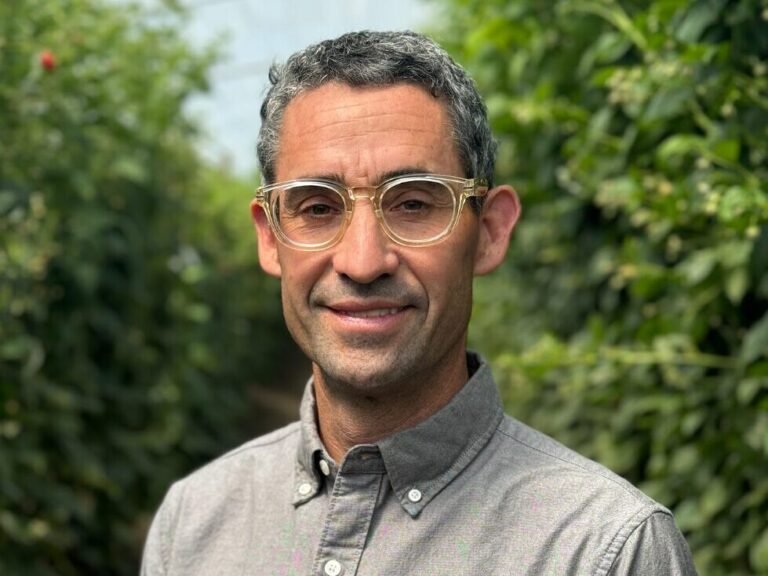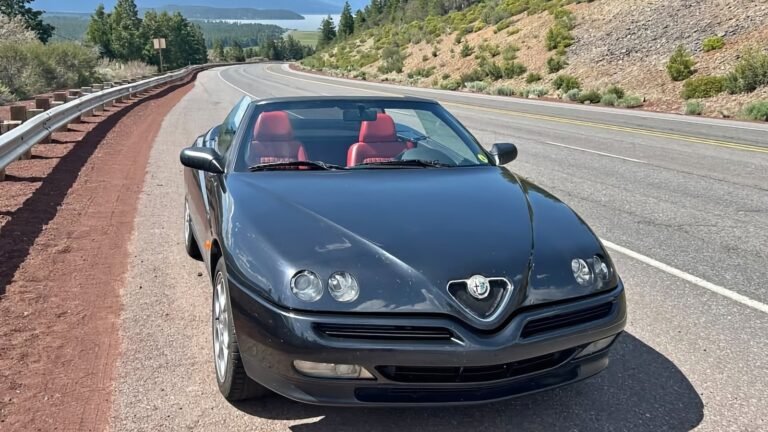
How should big food companies work with startups to accelerate innovation, and what approach ensures a win-win for both parties?
No one has nailed it quite yet, acknowledges Richie Gray, who leads the SnackFutures Ventures team at snacking giant Mondelēz International. But experimenting with different models over the years has yielded some useful lessons, he says.
SnackFutures, for example, has evolved over the years from a venturing and innovation hub that would also incubate novel products in house (Dirt Kitchen, CaPao, Ruckus & Co, Millie Gram, and NoCoé, which were all quietly phased out) to a more traditional corporate venture fund.
“We launched a lot of products, but we struggled to really bring them to life because we rely on our business units to do that, and our business units had bigger businesses and bigger brands to focus on.”
AgFunderNews (AFN) caught up with Gray (RG) at the Future Food-Tech event in London to learn more about his investment strategy and where the company is placing its bets.
AFN: Tell us how SnackFutures has evolved over the years and what you learned from this
RG: When we first launched SnackFutures, it was predominantly an innovation group. We had two separate pillars: invent and invest. And 95% of the focus was on invent, where we tried to work as an internal startup ourselves, but also partnering with other startups to drive the new innovation agenda, where we were developing new brands in new categories, taking us into different spaces.
The team developed some really interesting brands, some good concepts, all in the right strategic spaces, but where we struggled was when it came to commercializing. We launched a lot of products, but we struggled to really bring them to life because we rely on our business units to do that, and our business units had bigger businesses and bigger brands to focus on.
Meanwhile, we’d made some small investments, it was a little bit speculative in a way. So when I took over the team, we agreed that it was right to wind down the innovation side of things, but to take all that learning of understanding how startups operate. We’d then use the strategy in terms of the spaces that we wanted to go into, but instead buy in the expertise to invest in small and later stage businesses where we felt that they could actually do it better than we could.
With our help, our support as well as our capital, we get to something that’s more scalable and more successful more quickly.
AFN: Do you have a fixed amount of money to work with and a certain number of investments you plan to make a year?
RG: We don’t have a fixed fund. We don’t even have a set number of investments that we choose to make, and that’s very intentional, because we want to scan the market. We’re engaged in the various ecosystems and the different markets in which we look to invest, and then we react to what we see.
If we were to put a fixed number on it, whether that be in terms of amount of capital or a number of investments, it might force us to make some investments that might not be right. So everything is assessed on a case-by-case basis. Our investment comes off our company balance sheet, and we’re highly strategic in how we do that. So we don’t operate like a financial VC. We know the areas of interest to us, but we’ll invest when we see the right business that we think can really fulfill our objectives.
AFN: What’s the approval process like to sign off on an investment—how quickly can you move?
RG: It’s really short. We rule out an awful lot of what we see, and when we eventually do decide to put a proposal forward, I have a very lean investment committee, which consists of our CEO, our CFO, and my immediate boss, who’s our chief strategy officer.
We give an initial consideration: are we interested in this business? And if the answer is yes, we’ll do full diligence, and then it results in an investment memo and an approval. That process is quite short. It’s weeks, not months. We pride ourselves on being quite efficient.
AFN: How does SnackFutures Ventures view investments vs a pureplay VC company?
RG: A financial VC might be quite happy for a business to grow in value very quickly but max out at a certain level, and then they can exit and get their financial return.
To us, the exit point, ideally, is the point at which we would acquire. Now that won’t always happen, obviously. So we keep it flexible, but that’s how we’re really investing in a brand with a view to it becoming fully successful and then us acquiring further down the track.
But we also invest in enabling technologies, and that’s not really about ownership. That’s more around investing to get access to a technology that we can see being applied in our business. This would make us more competitive, more innovative, but also where we know that we can help that business scale with our expertise, whether that be from our R&D teams or other parts of the business.
I think it’s the strategic aspect of what we’re investing in and knowing that we see those startups playing a role within our own business, rather than just looking at the financial return, that makes us different.
AFN: Do you have a right of first refusal on investments?
RG: It really depends. It’s not something we insist on. We were quite flexible with our terms. Sometimes we think if we’re going to put a lot of money and a lot of resources into helping a business, then maybe we might want to have certain rights that create more security for us.
But we also recognize that founders need to stay competitive. We want them to be able to raise other finance on the market, so we don’t like to lock in our portfolio companies. But we do like to have certain rights that are in recognition of the value that we bring as an investor.
AFN: How do you manage expectations on both sides at the start of deal talks and how do you work with your portfolio companies?
RG: Managing expectations is really important. It’s something that we’re learning about all the time. Quite honestly, it is really important to get a clear idea of how we’re going to work together, to know that they can feel good about how we will operate, and we feel good about the kind of cultural things and the coachability of the founder.
It’s important to get those things out on the table very early on. And then once we then get into an investment with a portfolio company, we’re very hands on. We don’t control [portfolio companies], we take minority stakes.
We’ll typically take a board seat if we believe that’s in the best interests of the founder and the company. But more importantly, we bring our expertise and our resources to help a business. And that comes directly from my team, but also from other Mondelēz functions, and it’s wherever we see the need. Sometimes it’s in sales, helping them open doors to get distribution. Sometimes we even create jobs within our portfolio companies so Mondelēz people can go and work with a [portfolio] company for two days a week. We quite often do that in marketing or other functions.
AFN: How would you characterize the investment climate right now?
RG: The climate is a difficult one. There’s a lot of volatility in the world right now. Geopolitics, regulatory, fast evolving consumer behaviors… do make the climate tricky, and because of that, investors are more cautious. They don’t want to make the wrong call when things might very quickly change.
And that caution applies to us as well; we’re very careful about where we choose to invest our money.
However, we’re immersed in the innovation, startup, and investment ecosystems, especially in the US and in Europe, and we see all the deals, which helps with the partnerships that we have with VC funds and other scouting partners. So we feel good about our pipeline.
AFN: Mondelēz ran the CoLab Tech accelerator for a couple of years and this year joined the 100+ Accelerator as a corporate partner. It also has an open innovation team. How do these relate to SnackFutures Ventures?
RG: So open innovation and CoLab Tech are almost an extension of what SnackFutures does. We work very closely with the R&D team; we’re constantly sharing back and forth and working together and we get very involved in the open innovation agenda.
Especially on the tech side of things, when we see really great technologies or businesses, we might want to invest. But equally, we might want to create other types of partnership, whether that be offtake agreements or joint development agreements, or material transfer agreements.
Often the team and I will broker that and then facilitate it for the R&D team to get involved.

AFN: Are there particular areas or themes that you’re focusing on?
RG: Within brands we stay quite open, because we want to find the disruptors out there that can really make a difference in snacking. When it comes to technologies, we’re quite focused as to what we’re looking for. We’re very interested in the whole cocoa landscape, for obvious reasons. So we look across cocoa alternatives, across other technologies and businesses that are working on improving crop yields or anything that’s related to building resilience in the cocoa supply chain.
For example we’ve invested in cell-based technology [plant cell culture] to develop cocoa [via Israeli startup Celleste Bio]. It’s still very early stage, but I feel really good about where that business is going. It’s a very interesting space, but there are other spaces within cocoa that are also interesting to us.
We also look at other alternative ingredients that can help improve the nutritional profile of our products, whether that be sugar alternatives or alternative fats and oils.
On the other end of the technology spectrum, we’re also looking at AI and other enabling technologies that can help deliver a more efficient supply chain or better consumer experiences, including in packaging.
AFN: Do you think big food companies have struggled to find the right models and structures to facilitate innovation?
RG: Everyone’s doing it differently. I think the need to innovate is slightly different across all the different companies. Sometimes it can be a little bit cyclical as well. We found during COVID-19, for example, it made sense to really focus on our core, and make sure that the basics were done brilliantly, that our core range was available for consumers in the right format, in the right place, at the right price. But post-COVID-19, clearly there was a need to drive additional growth through innovation.
I do think everyone’s trying different models. I think there’s a greater appreciation nowadays from everyone in the food industry of the need to use partnerships to get there, we can’t do it all ourselves. And that’s the reason we engage so much with the startup community.
The post SnackFutures Ventures: How Mondelēz fine-tuned its approach to startup collaboration appeared first on AgFunderNews.




